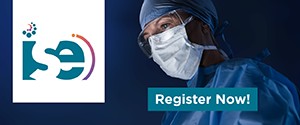Administrative Information
Important Information
The In-Service Examination will be held on Thursday, March 5, 2026, for all residents in plastic surgery training programs. The exam is broken down into five sections with a total test time of six hours. This time includes allocated time for a tutorial, two breaks and completion of demographic and evaluation questions.
Administration Requirements
- Each program to provide the contact information of a program staff liaison, chief proctor and program director.
- Each resident should be enrolled under the respective training program ID (ACGME) to ensure accurate reporting.
- Each program should request in writing any accommodations needed: Extra test time, extra break time, notification of resident testing at other location site.
- Program to reserve adequate lab space – Environment should be free of distractions and away from highly trafficked areas with minimum noise. Every attempt should be made to start testing prior to 9:00 AM allowing all examinees an equal testing environment.
- Program to provide workstations and/or laptops with recommended technical configurations for each examinee plus (+) backup workstations in case of the exam day hardware failure.
- One (1) Proctor workstation with the recommended configuration in each exam room.
- Training Program requires a minimum of two (2) proctors on the day of the exam, one to monitor the Chief Proctor workstation and one to monitor participants. (Computer lab staff may serve as secondary proctors)
- A dedicated technical support staff member with administrator privileges is required to check at least one day in advance of the March 5 exam day.
- Test and confirm each workstation prior to exam day. Residents who will be testing on laptops must run system checks at least one day in advance of the March 5 exam day.
- Chief Proctor to review Chief Proctor manual and Chief Proctor video. Practice utilizing proctoring software recommended.
About
The purpose of the ASPS In-Service Exam also known as the Plastic Surgery In-training Exam (PSITE), is designed to assess current knowledge in plastic and reconstructive surgery. The exam is administered annually and provides both experienced surgeons and surgical residents with a comprehensive review of the core curriculum of plastic surgery. For the resident, there is a correlation1 between one's score on the PSITE and success on the written board examination at the completion of residency. The test consists of 250 items across five disciplines that is meant to test the wide range of knowledge that a plastic surgeon is expected to possess. The specific areas tested include comprehensive plastic surgery, craniomaxillofacial surgery, aesthetic/cosmetic surgery, hand and lower extremity surgery, and core surgical principles. While four of the five modules cover content directly related to plastic surgery, core surgical principles also includes content from other specialties that is important for plastic surgery trainees to know.
The In-Service Exam is a formative assessment to be used as one of several instruments to measure residents' acquired knowledge as compared to their peers among a national norm group composed of plastic surgery residents from accredited U.S. and Canadian plastic surgery graduate training programs. The In-Service Exam is intended to provide information to resident programs that will be used to improve each program's teaching; it is not intended to be used as the sole data point in evaluating a resident's content knowledge, ASPS and the In-Service Exam committee recommends that performance on the In-Service Exam be evaluated in the context of other assessment measures as well as trends.
1. Girotto JA, Brandt K, Janis JE, Cullisen T, Slezak S. Abstract: Saw it coming: The correlation between poor performance on the plastic surgery in service exam and failure on the American Board written exam. Plast Reconstr Surg Glob Open 2017;5(Suppl):70.

